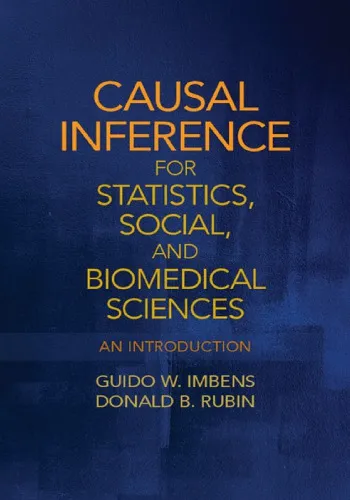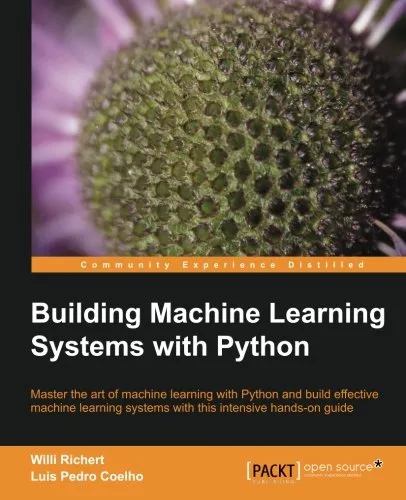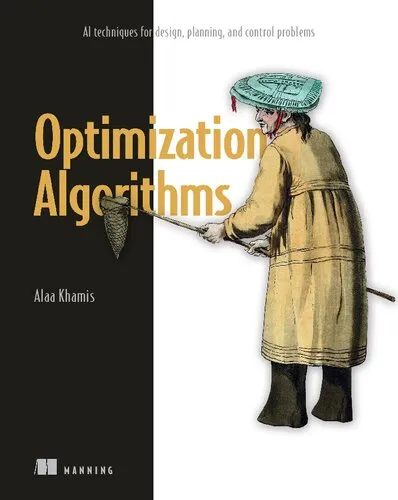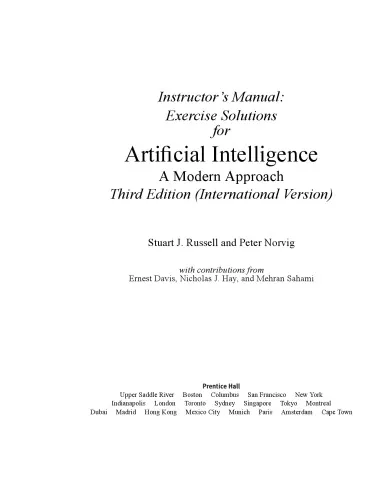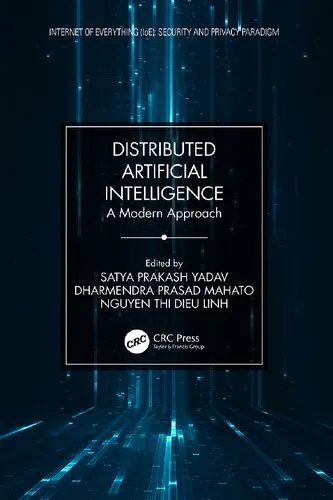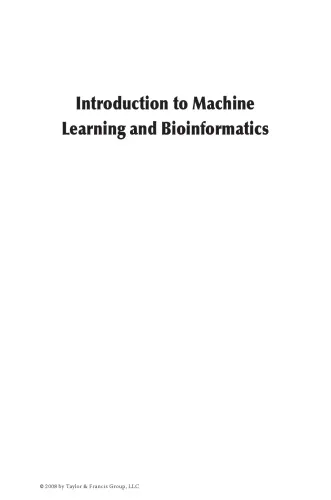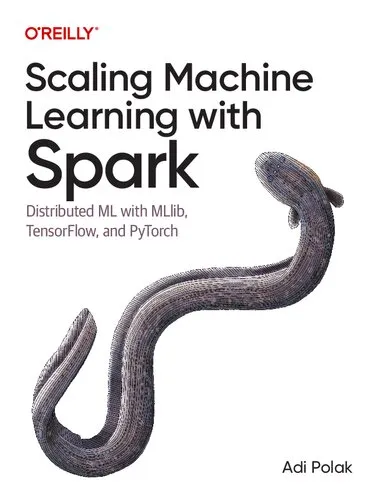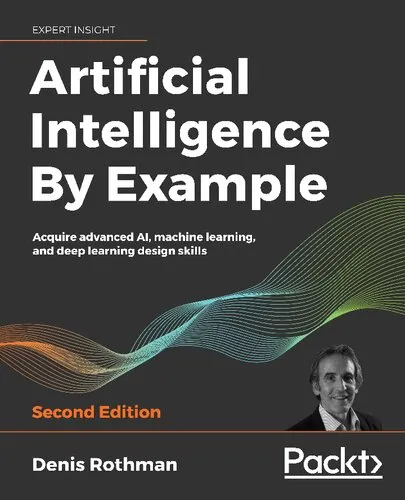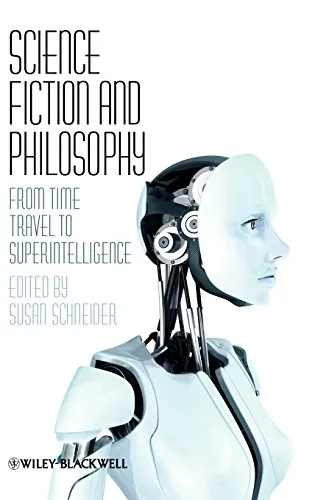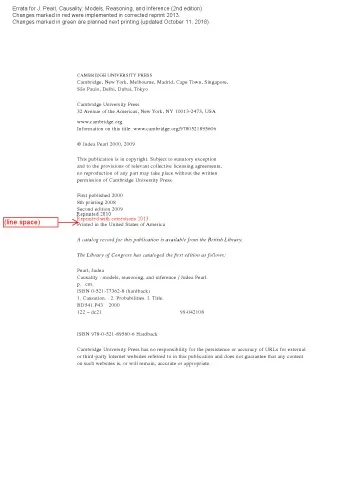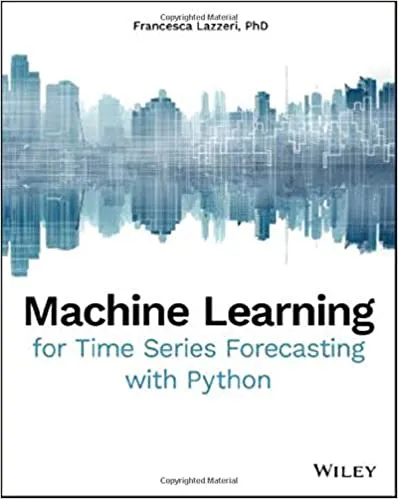Causal Inference for Statistics, Social, and Biomedical Sciences: An Introduction
4.7
Reviews from our users

You Can Ask your questions from this book's AI after Login
Each download or ask from book AI costs 2 points. To earn more free points, please visit the Points Guide Page and complete some valuable actions.Related Refrences:
Introduction to 'Causal Inference for Statistics, Social, and Biomedical Sciences: An Introduction'
Understanding causality is at the core of scientific research, policy-making, and decision-making. The book 'Causal Inference for Statistics, Social, and Biomedical Sciences: An Introduction' by Guido W. Imbens and Donald B. Rubin provides a thorough and accessible introduction to the field of causal inference, equipping readers with the tools to tackle one of the most important challenges in empirical research: establishing cause-and-effect relationships.
This book serves as an essential resource for students, researchers, and practitioners in fields such as statistics, social sciences, public health, economics, and medical research, offering a clear and rigorous framework for understanding and implementing causal inference methodologies. Written by two eminent scholars, Guido Imbens and Donald Rubin, this text synthesizes decades of groundbreaking research into a cohesive guide for understanding causation in complex systems.
Detailed Summary of the Book
The book begins by introducing the foundational concepts of causal inference. At its core, the authors present the potential outcomes framework, which is a formal way to define causality and think about counterfactuals. This framework is crucial to understanding how causal effects can be inferred from data, whether through experimental, observational, or quasi-experimental designs.
The text covers a wide array of methodologies, including randomized controlled trials (the gold standard for causal inference), instrumental variables, regression discontinuity designs, matching methods, and difference-in-differences approaches. Each method is introduced with crystal-clear explanations, often supplemented by intuitive examples from real-world research in social sciences, public health, and biomedicine.
One of the strengths of the book is its use of examples that integrate theory with practical application, allowing readers to see the methods in action. The authors also highlight the challenges of causal inference, including issues like confounding, selection bias, and lack of randomization, and provide thoughtful discussion on how to address these challenges.
Each chapter builds progressively, from foundational topics to advanced modeling techniques. Exercises at the end of every chapter give students and practitioners opportunities to test their understanding and implement causal inference methods in a practical setting. With its unparalleled clarity and breadth, this book is more than a textbook—it is a guide to navigating the complexities of causality in the real world.
Key Takeaways
- The potential outcomes framework is the cornerstone of causal reasoning and is applicable across multiple disciplines.
- Randomized experiments are the most reliable way to establish causality, but the book also provides robust methods for analyzing observational data where randomization is not possible.
- Understanding and addressing biases, such as confounding and selection bias, is fundamental to developing credible causal inferences.
- Causal inference is not just a statistical problem—it requires careful thinking about study design, assumptions, and interpretation of results.
- The book encourages a hands-on, applied approach through theoretical discussion, examples, and exercises.
Famous Quotes from the Book
"Causal inference is, at its heart, a missing data problem: we observe outcomes for one treatment or exposure condition but not for others."
"The potential outcomes framework forces us to clarify what we mean by 'causal effect' and ties its estimation directly to observable quantities."
"Experiments are not magic, but they are a powerful tool for extracting causation when appropriately designed and implemented."
Why This Book Matters
The field of causal inference has revolutionized how researchers across disciplines think about and analyze data. This book provides the tools necessary to rigorously answer causal questions, enabling researchers to design better studies and draw more reliable conclusions. The implications of this work extend beyond academia to practical applications in fields such as medicine, education, and policy-making, where understanding cause-and-effect is critical to making informed decisions.
By focusing on essential concepts, robust methodologies, and practical guidance, Imbens and Rubin address the critical need for clarity and precision in causal reasoning. Their work helps bridge the gap between statistical theory and real-world applications, empowering readers to think critically about causality and its implications in a wide range of contexts.
Ultimately, the significance of 'Causal Inference for Statistics, Social, and Biomedical Sciences' lies in its ability to demystify the complexities of causal inference. This book equips researchers not only with technical skills but also with the intellectual framework necessary to make meaningful contributions to their respective fields and beyond.
Free Direct Download
You Can Download this book after Login
Accessing books through legal platforms and public libraries not only supports the rights of authors and publishers but also contributes to the sustainability of reading culture. Before downloading, please take a moment to consider these options.
Find this book on other platforms:
WorldCat helps you find books in libraries worldwide.
See ratings, reviews, and discussions on Goodreads.
Find and buy rare or used books on AbeBooks.
1366
بازدید4.7
امتیاز0
نظر98%
رضایتReviews:
4.7
Based on 0 users review
Questions & Answers
Ask questions about this book or help others by answering
No questions yet. Be the first to ask!
